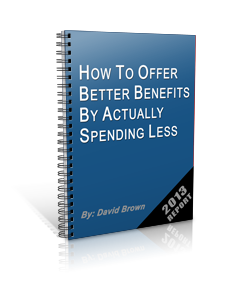 We are seeing a number of our employers and individual clients renewing with a 20% rate increase. These rate increases are almost double of what we have seen since the passage of Obamacare. We want to explain how the tax side of Patient Protection and Affordable Care Act (PPACA) is affecting the premium. While it is quite clear that taxes are not the only reason rates are increasing, taxes are having a big impact on the rate increases and are going to continue to be a factor with your Health Insurance rates.
We are seeing a number of our employers and individual clients renewing with a 20% rate increase. These rate increases are almost double of what we have seen since the passage of Obamacare. We want to explain how the tax side of Patient Protection and Affordable Care Act (PPACA) is affecting the premium. While it is quite clear that taxes are not the only reason rates are increasing, taxes are having a big impact on the rate increases and are going to continue to be a factor with your Health Insurance rates.
“The Health Insurance Tax is larger than ALL the Other Industry Specific Taxes Combined.”
“8% Increase in Health insurance premiums solely due to new taxes and fees”
$675 billion in the first 10 years
The House Ways and Means Committee recalculated the net impact of all taxes in the new law, concluding that the 21 new taxes imposed under the act would cost taxpayers more than $675 billion over its first 10 years.
How Obamacare is projected to affect you and your families rates
$2150
-
- – Individual Coverage
$2760
-
- – Coverage through a Small Employer
$2610
- – Coverage through a Large Employer
Family Coverage
$5080
-
- – Family Coverage
$6830
-
- – Coverage through a Small Employer
$7130
- – Coverage through a Large Employer
Blue Shield of California Rate Increase
Patient Protection and Affordable Care Act (PPACA) requires that taxes be collected in 2013 in order to fund certain provisions of health reform that go into effect January 1st 2014. This has caused Blue shield to increase their rates by,
$63 per member per year increase in premium based on 2014 membership.
Health Insurance Taxes you are now paying
- The reinsurance contribution assessment amount under the proposal is $5.25 PMPM. For three years, all commercial health plans, including self-insured, will be subject to a per capita contribution to fund a reinsurance pool that will offset some of the expense of high-cost beneficiaries in the individual market. The proposal sets the rate for 2014 at $5.25 PMPM, in line with analyst estimates. CMS also announced the attachment point at which reinsurance will start sharing medical costs for an individual ($60k), the coinsurance percentage of costs that will be reimbursed (80%) and the reinsurance cap where the reinsurance payments stop ($250k).
- A negative from this regulation is that HHS is proposing another fee that will raise premiums in 2014 — HHS intends to charge a user fee equal to 3.5% of premiums to cover the expenses associated with running the Federally-Facilitated Exchanges (FFE). This 3.5% fee is in addition to the health insurance industry tax (2.5%) and the expected reinsurance charge (2.0%).
- Health insurer tax – to help fund premium subsidies for certain individuals and families purchasing coverage through health insurance exchanges.
- Transitional reinsurance tax – to help stabilize premiums and the cost of high-risk individuals entering the individual market in each state’s health insurance exchange.



